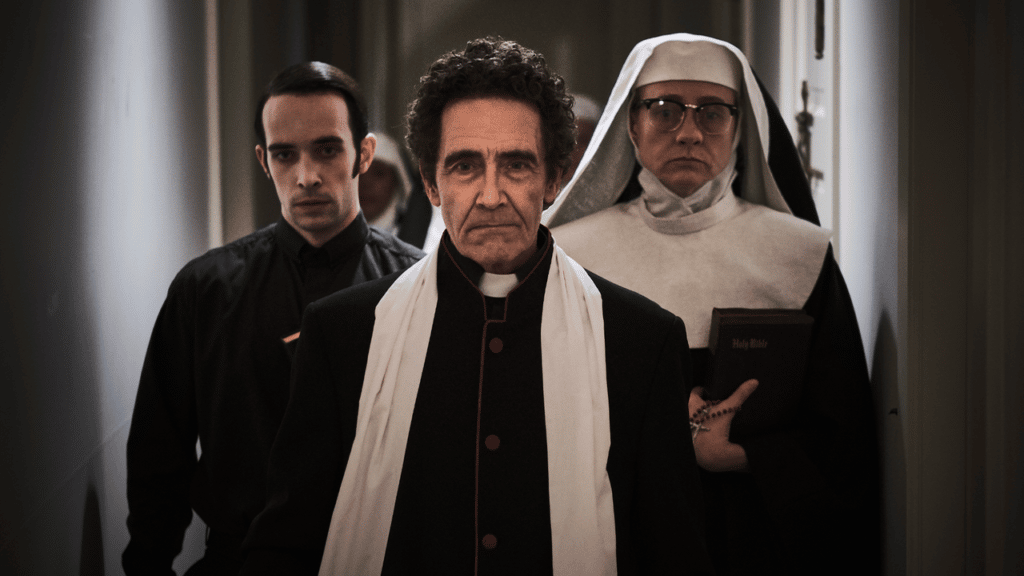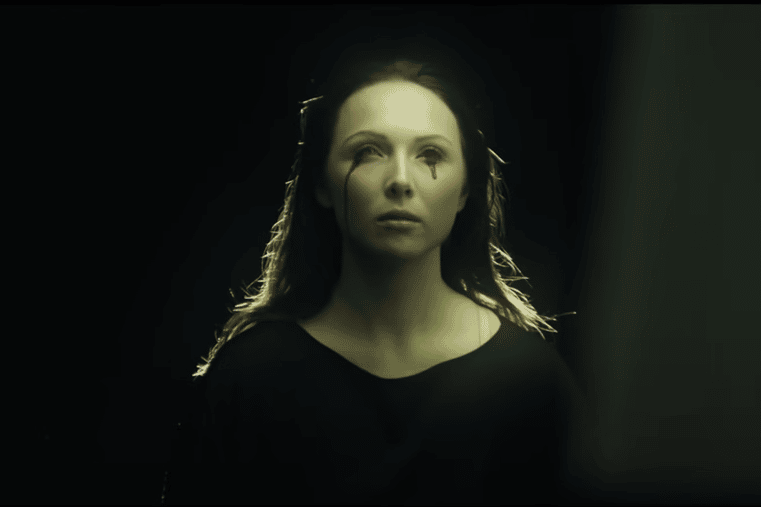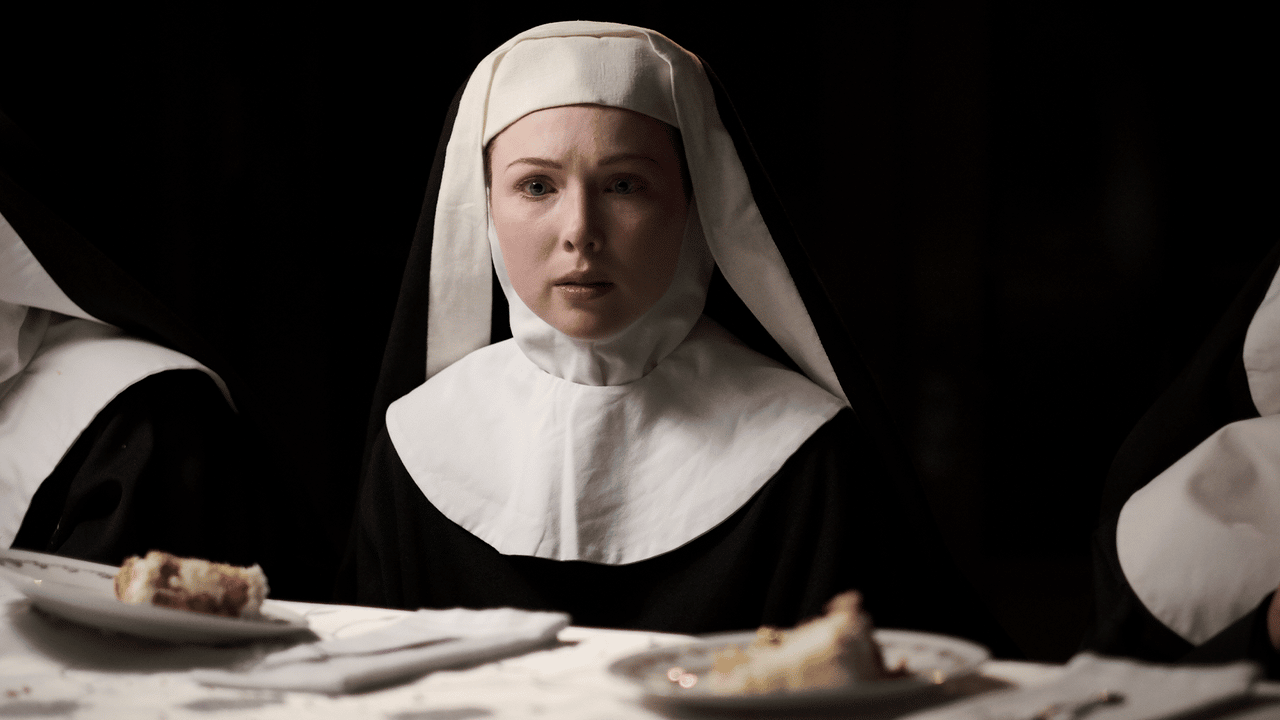
By a strange coincidence, I sat down to watch a screening of Agnes (2021) almost exactly fifty years since the release of The Devils (1971), Ken Russell’s incendiary historical horror about possession in a 17th Century convent. Since then, misbehaving nuns have featured in cinema fairly regularly, though often (if not always) appearing in more salacious stories, or in straightforward horror. Agnes starts off looking very much like part of this tradition. It doesn’t stick with this, though, and broadens in scope, looking at life outside the convent walls and taking an oblique look at faith in a modern context. Does it give itself too much to do? It certainly has its charms, but overall the film takes the audience on a journey which is just a little too meandering.
The Carmelite convent of Santa Theresa is a very small community, presided over by a Mother Superior who seems very ill-disposed towards any sort of rest, relaxation or enjoyment of any kind; as such, she can barely conceal her dismay at celebrating one of the Sister’s birthdays. Sister Agnes (Hayley McFarland), one of the younger members of the order, would seem to agree, and begins hurling her birthday cake at the other women in the room. But there’s perhaps more going on here than a minor meltdown and the Sisters fear a case of demonic possession: the gravelly voice is always a giveaway. The Diocese is called, and two priests – the older, more experienced Father Donaghue (Ben Hall) and the neophyte Father Benjamin (Jake Horowitz) – attend Santa Theresa’s. Whereas Benjamin believes in demons, Donaghue is more worldly, believing exorcism to be effective because of the showbiz of the rite itself, but they find their feet in the convent and quickly get underway.
What follows is de rigeur for possession on film – a sequence of scenes where it seems Agnes is cured, but then she isn’t, then there’s some violence, then they try again. Donaghue seeks reinforcements and his small jumble of outsiders does its best to help the almost always-absent titular character. But it’s Agnes’s closest friend Mary (Molly C. Quinn) who shifts into focus; her friend’s predicament seems to cause flashbacks to her old life and the person she was. This troubles her to the extent that, as events threaten the order itself, she begins to wonder if her place is in a convent at all.
The set-up in the film, where we establish our setting and who’s who on screen, is the most successful and visually charming and goes furthest towards establishing director Mickey Reece’s own aesthetic style. Agnes is quick to show its strange, dreamlike vibe; it’s achieved through little quirks such as suddenly focusing on an object, changing the lighting to emphasise it, or by varying the shooting style, from a slowly spinning camera to a sequence of quick edits. The convent looks attractive on screen, a place out of time. Then there are the odd emphases on, for instance, saying grace at a roadside diner, taxidermy seated at the table, or the anecdote about a demon that was never exorcised, because the afflicted family just got used to his company.

The film’s abrupt about-face, then, is a shame because it deprives the audience of some of the more interesting content. It’s via Father Donaghue that a lot of the more interesting questions and points about modern Catholicism are raised; he’s a realist, referring to genuine beliefs in possession and exorcism as ‘medieval woo-woo’ but also appreciating the importance of ritual, and what it can achieve for people laid so low that they really imagine they’re possessed. The priests talk about rational causes for possession – a swathe of mental illnesses could be responsible – but Benjamin is very much the foil to Donaghue’s worldliness. There are other topics, less explored, which also affect modern Catholicism, and some interesting content on how the secular world interacts with the faithful (or the once-faithful).
But this is dropped quite abruptly, characters and all, as the film seems to fall into two fairly separate chapters. It’s difficult to feel anything for Mary’s character and the gamut of new, partly-explored characters makes the film feel rather thin, a departure from the elements which seemed to work best. The arty style hangs on in there, so the film always looks good, but the narrative wanders and ends quite abruptly, only hinting finally at any meaning behind all of this. An ambitious and visually appealing film, Agnes works well in some respects but struggles in others.
Agnes (2021) will feature as part of the 25th Fantasia Film Festival.
